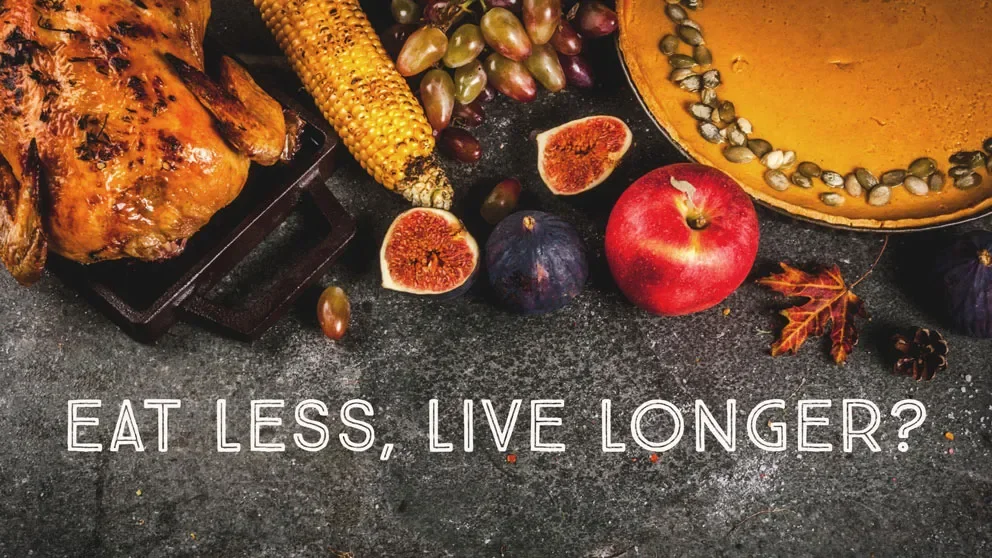Eat less, live longer? Cutting calories extends life span in mice
The Search Magazine Article | November 17, 2017
Diet, and specifically restricting calories, appears to have a strong link to the aging process.
Research dating back to the 1930s has demonstrated a link between a limited-calorie diet and extended life span, in a wide variety of research models: yeast, drosophila and c. elegans (laboratory fruit flies and nematodes), rats and inbred mice.
Today, JAX Professor Gary Churchill is taking these studies to the next level, looking at how different individuals respond to variations in calorie intake to pinpoint the genetic and physiological variations involved.
Some calorie-restricted mice in the DO population live incredibly long life spans.
Humans are notoriously poor at sticking to any kind of calorie-restricted diet, and it’s impossible to conduct lifelong studies of this kind in humans. Mice provide an experimental stand-in, given their relatively short life span of mice (average two years), and the ability to control every aspect of their laboratory environment, including diet.
Churchill is one of the architects of a special kind of mouse colony known as Diversity Outbred (DO). The result of carefully orchestrated cross-breeding of genetically defined inbred strains, these mice nevertheless represent the kind of random-looking genetic variation you’d find in the human population.
“Some calorie-restricted mice in the DO population live incredibly long life spans,” Churchill comments, “some reaching almost five years of age,” the equivalent of a human living about 160 years.
Churchill is now segregating DO mice into groups receiving different feeding regimes throughout their life span. Control animals are on an ad libitum (“all-you-can-eat”) diet. Some mice are fed daily but receive a reduced amount. Fasting animals are provided food ad libitum on most days but spend a period of time each week with no food access.
Along the way all the mice will receive frequent and extensive physical evaluations to collect data that can later be correlated to how long they live. And because the genomic sequence of every mouse is known, overlaying this physiological data should provide unprecedented insights into the genetic impact of calorie restriction on health and longevity.
“While it is clear that some animal models, like the inbred C57BL6/J mouse strain, benefit from caloric restriction, there is also evidence that the effects can differ depending on the genetic makeup of the animal,” Churchill notes. “The same will likely be true for people: Caloric restriction may be a good thing for one person and not for another. Until we understand these individual differences, we have to be very cautious about recommending dietary changes for people.”
Understanding how diet influences the genetic components of aging and age-related diseases could someday lead to treatments that trounce the ill effects of poor nutrition.
In the meantime, all the evidence shows that the best way to stave off the diseases of aging is to maintain that American Heart Association-recommended healthy lifestyle. So skip the fries and reach for an orange, then go for a walk.
